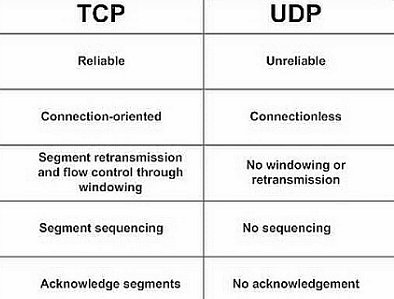OpenVPN: Difference between TCP and UDP
Open VPN is a type of software application. It helps to create P2P and S2S connection. P2P means point to point connection and S2S means site to site connection. These connections are set by implying VPN or Virtual Private Network.

In Open VPN there are two types of protocols are used one is TCP and other is UDP. TCP means Transmission Control Protocol and UDP means User Datagram Protocol. TCP is connection oriented and UDP is simpler than the TCP.
TCP = reliable,For Far distances between VPN server and Your ISP.
UDP = fast,For close distances between VPN server and Your ISP.
TCP requires acknowledgement packet to be received for every packet sent. So it needs more overhead in this connection. But this protocol is more reliable.
On the other hand UDP is a stateless protocol. This means the packets which are assumed to be received does not need any retries or acknowledgements. So this process becomes more flexible than the TPC. But it also prone to packet loss.
Difference between TCP and UDP
Both of these protocols are used in open VPN. Though they have some advantages and disadvantages. Let’s take a look on them
>> TCP is connection oriented. This means the data sent is dependent on the connection. If the connection is lost during the process then the server will request again for the lost part.
On the contrary the UDP is connectionless protocol. This means once the data is sent the sender does not know whether that is finally delivered to the destination or not.
 >> In TCP the data is sent according to order. That means if you sent two messages together you can be sure that the first message will be sent first then the other one.
>> In TCP the data is sent according to order. That means if you sent two messages together you can be sure that the first message will be sent first then the other one.
But in the UDP protocol there is no order. Either of the messages can be sent first. So it can be said order less protocol.
>> If the TCP stream arrives in the wrong order then there needs to be some correction. So while doing this all the sequence will have taken back. So it requires a lot more work and the process becomes slow.
But in case of UDP packets are sent individually and if the delivery is done then it is sure that all data have been sent. So it does not consume much time like the TCP.
Conclusion:
From the above discussion it is clear that none of them are flawless. There are some differences. But as people need more authentic data than speed so they go for the TCP and it is the most widely used IP protocol.










No Comments